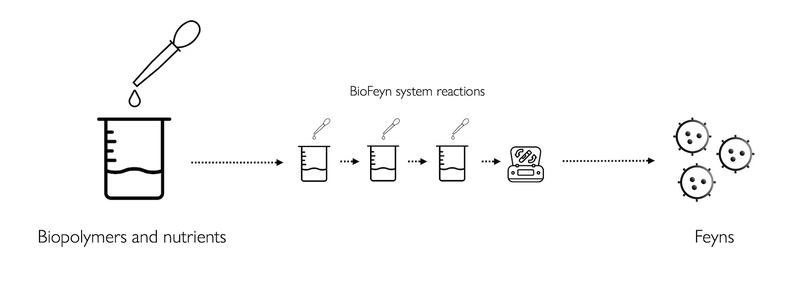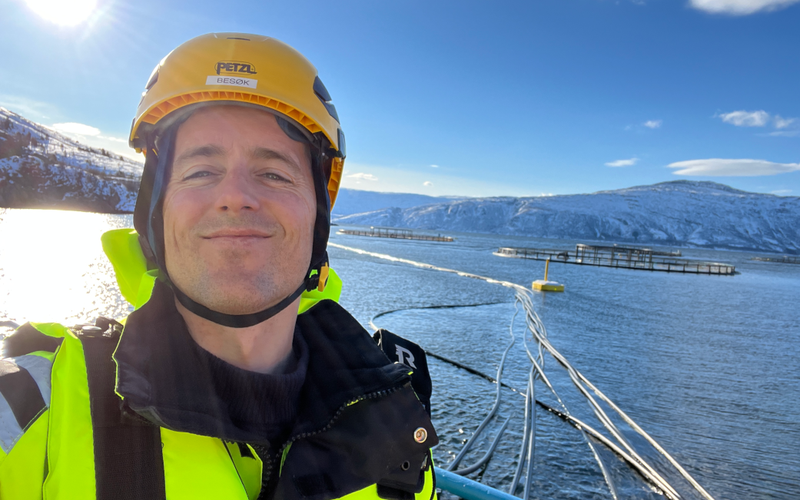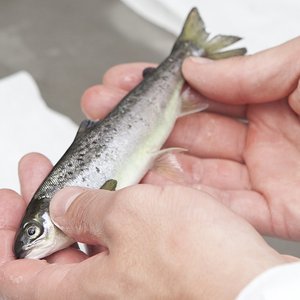BioFeyn is a new company applying technology developed for human biomedicine to improve fish health and nutrition. It was awarded the 2022 Seafood Innovation Award and Timothy A. Bouley, co-founder and CEO, shared his insights into the company's recent developments.
The idea
“My partner and I both come from the world of biomedicine. I’m a medical doctor and she is a molecular biologist, where biotech is an everyday part of life. I also spent many years working at the World Bank, investing in agriculture and aquaculture. During this time, I saw many biological problems that could be fairly easily addressed with a bit of technology transfer from those working on humans to those on animals. This is the underlying concept of BioFeyn – translating advancement from one field to the other for accelerated gain,” Bouley explained.
BioFeyn encapsulates aquafeed additives in a biodegradable shell that is easily absorbed by fish. The type of encapsulation and form of polymers the company utilizes are unique to the field. There have been many decades and billions of dollars spent fine-tuning encapsulation technology for human-focused therapies. These advancements, however, are primarily locked up in biotech that has not been applied to fish.
“Current and past methods of encapsulation for feed have been rather crude – simply assembling particles and providing some basic level of protection to ingredients. What we are doing is carefully matching biopolymers with specific ingredients to create very fine blends of nutrients that are optimized for both protection and absorption,” said Bouley.
Application in aquaculture
The company is focused on some of the highest-value nutrients in aquaculture – vitamins, minerals, omegas, and astaxanthin – which have enormous value to the industry but are also complex to use because they tend to degrade or suffer from poor absorption.
“Our products are integrated into aquafeed. We have a few techniques for this and have engineered them to withstand the ordinary stresses associated with feed production so that they can integrate into existing supply chains,” Bouley explained.
BioFeyn is validating it in a simulated salmon gut and is also launching trials this fall with multiple testing facilities. “We have strong laboratory evidence validating the impact of our technology. Now, we just need these results demonstrated at the whole animal level. We are starting this process in salmon, but the technology is species agnostic and there is wide scope to extend this into feed for other species, whether they be in the water or on land,” Bouley unveiled.
“We’re aware that BioFeyn must overcome both biological and cultural challenges to gain widespread market adoption. On the first point, we need customers to understand what we are offering really is a safe and quantifiable improvement to the status quo. Testing and trialing are a big part of this and we are aggressively pursuing them. But it is also cultural acceptance and the normalization of using advanced biotechnologies – and getting producers to understand that we are simply applying some of the same advancement that has already been used to improve nutrients and medicines that have likely already even been a part of their own health and nutrition,” Bouley said.
Scalability
Scalability is one of the primary challenges any new company working in feed must face. “Contributing to aquaculture in a meaningful way is very challenging because of the enormous quantity of ingredients needed. Fortunately, our technology is very small, and we are working with some of the highest value, lowest volume ingredients on the market. This lowers the barrier to entry somewhat, though the scale is still one of the primary business challenges we will face over time,” Bouley said.
“Ultimately, we are enhancing efficiency. This is critical both in terms of diminishing draw on sometimes scarce natural resources and getting the economics to work. There are of course costs associated with what we are doing, but we are also banking on the overall efficiencies we are adding to the system to ensure that this adds value across the supply chain,” he continued.
Markets and future prospects
Currently, the company is purely focused on Atlantic salmon. The research, testing, and industrial infrastructure in salmon is unparalleled, not to mention the consolidated assets in Norway.
“From here, there is a logical extension to working with salmon (and other salmonids) outside of Norway. Other marine species in these same locations are a pretty safe bet for further expansion before moving on to new species in geographies elsewhere,” Bouley said.
“In terms of nutrition, we are targeting a number of challenges, some of which can be addressed with existing (albeit improved) ingredients, while others require the introduction of something new, which we are also developing,” he mentioned.
BioFeyn is always looking for partners – both those that bring knowledge and capital. “We know that we have something unique to offer in this field, but also clear awareness that we cannot do this on our own. Partnerships with feed producers, farmers, and ingredient producers are essential for growing BioFeyn because it is these folks who are on the front lines of impact and have real challenges that need solving. We are also a biotechnology company that requires capital to realize the full potential of our innovations. Fortunately, we have some great investors already on board, both in the US and in Norway - but could always do with more!” Bouley concluded.














